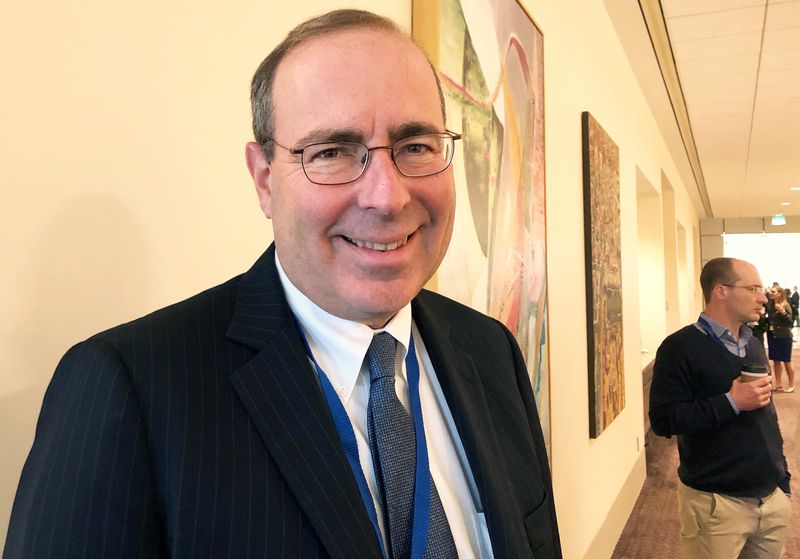Fed’s Barkin sees slower rate hikes, for longer, maybe higher
2022.11.28 19:41
[ad_1]

© Reuters. FILE PHOTO: Federal Reserve Bank of Richmond President Thomas Barkin poses during a break at a Dallas Fed conference on technology in Dallas, Texas, U.S., May 23, 2019. REUTERS/Ann Saphir/
(Reuters) – Richmond Federal Reserve Bank President Thomas Barkin on Monday said he supports moving to smaller interest-rate hikes in the central bank’s fight to bring down too-high inflation.
“I’m very supportive of the path that is slower, probably longer and potentially higher,” Barkin said in an interview with Bloomberg TV, though he declined to say how high he believes rates will need to go, saying the Fed will do “what we need to do” to ease price pressures.
“You obviously don’t want to do damage you don’t have to do. But the focus is on inflation and getting inflation under control.”
The Fed has raised borrowing costs faster this year than at any time since the early 1980s, using jumps of 75-basis-points at each of the last four meetings to bring the policy rate to its current 3.75%-4% range.
Policymakers have signaled they may move more slowly starting at their meeting next month, even as some including Fed Chair Jerome Powell have signaled interest rates may ultimately need to go higher than the 4.6% median that Fed policymakers had thought in September would be adequate to reduce inflation.
Barkin said he believes the Fed needs to make sure not to stop raising rates too soon, and should save any talk of potentially loosening policy until it is sure inflation is under control.
“It’s helpful to be somewhat more cautious as you’re in restrictive territory because you know, what you’re doing is going to affect things somewhere out in the future,” he said.
“That’s different than not moving; I just think it’s a better risk management approach to move a little slower as you collect the data.”
Asked if he could envision the Fed keeping rates high into 2024, a possibility raised by St. Louis Fed President James Bullard earlier in the day, Barkin said he could. “It depends a lot on what we’re seeing on the inflation side,” he said.
[ad_2]
Source link








